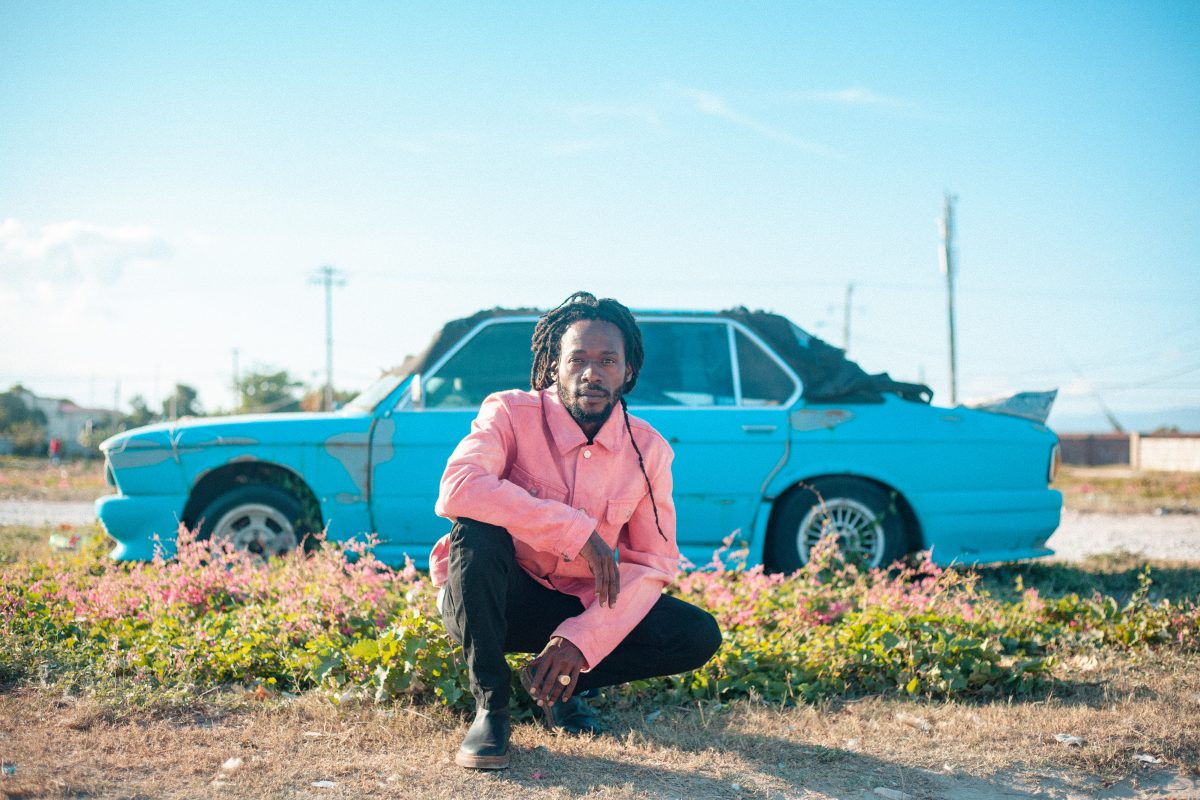Jesse Royal: ‘Royal’ Album Review

More than a self-titled sophomore, Jesse Royal’s 2nd album is a sonic personal archive. Released on June 11, 2021, Royal contains eleven lyrical missives and lives up to its roaring title and sublime cover art. The project shows the Maroontown rootsman evolving in real-time, shaped by faith, fatherhood, and his Rastafari creed.
On Royal, Jesse’s messages are rich and conscious, possessing the fervor of reggae and Rastafari at its core while mixing in elements from a multitude of genres. The album’s rich production is expertly calibrated: Grammy-winning Sean Alaric (responsible for Koffee’s Throne and Teyana Taylor’s Bad) who produced over half the album, along with Jesse Royal himself, Natural High, Dretegs, iotosh, Yared “Boomdraw” Lee, Romario Bennett (also known as Runkus) and Wayne Thompson.
“On this album you will hear elements of hip-hop, jazz, blues, Afrobeats and dancehall but reggae is the backbone that holds everything in place,” the Finally singer said of the album. “This album is much freer. We tried interesting melodies that I probably didn’t trust before and I expressed things that I typically wouldn’t, so that’s also why we called this project Royal. Because reggae is truth music – we don’t want to be labeled as people who only do one thing because music doesn’t really have a specific language, mood or a message.”
The New York Times in its review declared it a “play loud” suite, highlighting a few key songs as “music to cook to.” There’s considerably more here however; songs to feed the soul, vibe along with, sing out loud, and make you (re)think. The project starts and ends with spoken parables, and Rasta wisdom flows freely over a variety of rhythms and beats.
Opener High Tide Or Low is a divinely inspired delight featuring rising singer Samory I and produced by reggae rhythm masters, Natural High. With as much fervor as its namesake on Bob Marley’s Catch A Fire classic, Jesse proclaims “High tide or low, I’ll never let Jah go”.
Next up, he and Indiggnation King Protoje lay down the law on Lion Order as only bona fide Rasta bredren could: “Nuh keep nuh square inna yuh circle/ Nothing nuh sure in this world realize that.”
Another biting set of bars follows on the Stonebwoy assisted Dirty Money, an unrelenting condemnation of political greed. In sharp contrast to that is the wildcard entry with one of Jesse’s favorite titans of Jamaican music, the Worl’ Boss himself, titled Rich Forever.
The bass-forward Vybz Kartel feature focuses on shaking off old notions of wealth for more lofty pursuits. As the Palace Pickney himself puts it, “the song is a conversation about the restoration of our royalty, reclaiming dignity. We are all carefully crafted creatures of the universe and there’s nothing that can hold us back. We’re rich forever.”
Rasta musings continue on Natty Pablo, a full circle moment for Rastafarian livity (spirituality, marijuana use, veganism) which was once jeered and vilified by wider society. Natty Dread on the other hand is a smooth confessional over driving dub to the love of his life. “Although we argue and we fight, everything gonna be alright/ I can see di future, waan yuh bring mi yute yah/ Together forever babygirl..”
Militant and melodious, Black is a glorious track reaffirming African excellence. “I’m glad to be perfectly me, carefully crafted by the Almighty/ And Natty prefer die free than live life on my knees,” he chants with double-time bars. The track’s vocal delivery is among the album’s cuts that show the ‘natty dread’s’ ease navigating the vast soundscape that is Jamaican music — Jesse can jump from rapid-fire toasting to Sugar Minott-style crooning in a heartbeat.
On that note, the most moving song yet is the heartfelt ballad dedicated to Jesse’s girls — his young daughters Yali and Korus Grey — called Home. Over sparse instrumentals and haunting backing vocals, the Lily of The Valley pours out his love letter, explaining his absence in their lives due to his musical obligations.
“When Daddy’s not home and you feel alone/ Don’t get too lonely cause Jah love surround/ Followed the smoke and got fired, cause my dreams wouldn’t accept denial/ Pouring my thoughts into your heart/ wish I could get back the time that we lost,” he sings, as if complex lyrics could offset the toll of his commitment.
The reggae messenger wraps up the suite with a Kumar feature and a simple mantra: do my best. The song Strongest Link (Do My Best) is an energetic exit, full of exquisite melodies with the radical bars of each conscious crooner bouncing over the dub beat.
The 11 sonic vibrations on Royal comprise a worthy sequel, carrying messages of hope, strength, love, and consciousness. It’s an ambitious, impressive effort from one of the reggae revival’s most refreshing young stars.
